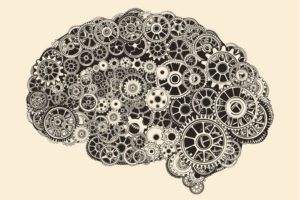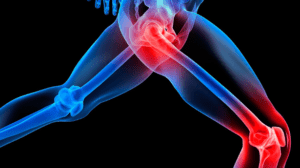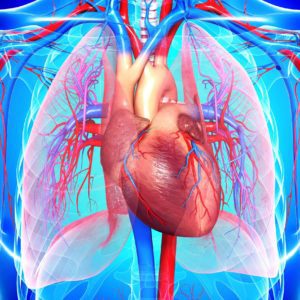Cholesterol and Statins.
If you or anyone you know is currently taking statins, or is being advised to take them, we really feel that it is worth giving this a read first.
The first section is from a book called ‘Eat Fat Get Thin’ By Dr. Mark Hyman.
The Big Business of Statins.
Drug company marketing has convinced us all that statin drugs are God’s gift to humankind and that they are essential to lower your risk of heart attacks and death. Think about how many feel-good commercials and magazine ads you’ve seen for cholesterol-lowering drugs. But do statins live up to all the hype? What does the science really prove? Most doctors now know that inflammation and oxidative stress are the biggest causes of heart disease, not cholesterol. A landmark paper in the New England Journal of Medicine lays out the science of why inflammation, not cholesterol is the root cause of atherosclerosis. It explains how white blood cells are driven into the walls of your arteries to protect you against rancid or oxidized cholesterol. They soak up the toxic oxidized or rancid cholesterol (not all the cholesterol) and that is what causes the plaque that clogs your arteries and leads to heart attacks. It turns out that the reason statins have any effect at all is not because they lower cholesterol but because they lower inflammation and also act as antioxidants. So they do have some benefit, but there are a lot better ways to reduce inflammation and get antioxidants with many fewer side effects!
However, a recent study found that using statins did not lead to lower heart attacks or death. In 2011, a group of Swedish researchers looked at the relationship between statin prescriptions and heart attacks in their country. They found that between 1998 and 2002, the rate of statin used among Swedish men and women between the ages of 40-79 roughly tripled. Yet this had no impact on the corresponding rate of heart attack incidence or mortality. Stunning, isn’t it? A tripling of statin use and no impact on heart disease! This is not a randomized trial, and just shows a correlation, but it still worries me.
Roger Williams, a 20th Century American biochemist who discovered vitamin B, once said something about research that rings true: “There are liars, damn liars and statisticians.” We see prominent ads on television and in medical journals for statins that report a 36 percent reduction in the risk of having a heart attack. But we don’t look at the fine print. What does that really mean and how does it affect decisions about who should be taking these drugs? Before I explain, here are some interesting findings to ponder about cholesterol and statins:
§If you lower LDL but have a low HDL there is no benefit to statins.
§If you lower LDL but don’t reduce inflammation (marked by a test called C-reactive protein), there is no benefit to statins.
§If you are a healthy woman with high cholesterol, there is no proof that taking statins reduces your risk of heart attack or death.
§If you are over 69 years old with high cholesterol, there is no proof that taking statins reduces your risk of heart attack or death.
§ Aggressive cholesterol treatment with two medications (Zocor and Zetia) lowered cholesterol much more than one drug alone but led to more plaque build up in the arteries and no fewer heart attacks.
§ Older patients with lower cholesterol have a higher risk of death than those with high cholesterol.
§ Countries with higher average cholesterol than America, such as Switzerland and Spain, have less heart disease.
§ Recent evidence shows that it is probably the ability of statins to lower inflammation that accounts for the benefits of statins, not their ability to lower cholesterol.
§ About 20 percent of people who take statins have side effects, including muscle damage and pain neurologic problems, memory issues, sexual dysfunction and more.
§ Statins have been linked to a dramatically higher risk of diabetes. In one study of almost 26,000 healthy people, those taking statins to prevent heart attacks were 87 percent more likely to get type 2 diabetes. In another randomized, controlled trial of 153,840 women, those who took statins were 48 percent more likely to get type 2 diabetes. Large reviews of all the studies show about a 10 percent increased risk. But if all the people who are currently advised to take statins did so, that would mean we would have another 4 to 5 million diabetics in [America].
The next extract is a really useful introduction to cholesterol and again addresses the issues with statins: The book is called ‘Grain Brain’ by Dr David Perlmutter.
Cholesterol is a precursor for the steroid hormones like oestrogen and the androgens, as well as for vitamin D, a critically important fat-soluble antioxidant. Vitamin D is also a powerful anti-inflammatory, helping to rid the body of infectious agents that can lead to life-threatening diseases. Vitamin D is not really a vitamin; it acts more like a steroid in the body or a hormone. Given that vitamin D is directly formed from cholesterol, you won’t be surprised to hear that vitamin D levels are low in people with a variety of neurodegenerative diseases like Parkinson’s, Alzheimer’s, and multiple sclerosis. As we age, natural cholesterol levels generally increase in the body. This is good because as we age our production of free radicals increases. Cholesterol can offer a level of protection against these free radicals. And beyond the brain, cholesterol plays other vital roles in human health and physiology. The bile salts secreted by the gallbladder, which are needed for the digestion of fat and, therefore, the absorption of fat-soluble vitamins like A, D, and K, are made of cholesterol. Having a low cholesterol level in the body would therefore compromise a person’s ability to digest fat. It would also jeopardize your body’s electrolyte balance since cholesterol helps manage that delicate equilibrium. In fact, cholesterol is regarded by the body as such an important collaborator that every cell has a way to make its own supply. So what does this mean for dietary recommendations? For years we have been told to focus on “low-cholesterol” foods, but foods rich in cholesterol, such as eggs, are very helpful and should be considered “brain food.” We have eaten cholesterol-rich foods for more than two million years. As you now know, the real culprits when it comes to decreased brain function and health are foods that are high on the glycemic index—basically, high in carbohydrate. One of the most pervasive myths I’m constantly debunking is the notion that the brain prefers glucose for fuel. This also couldn’t be further from the truth. The brain uses fat exceptionally well; it is considered a brain “super fuel.” This is why we use a fat-based diet as therapy for all manner of neurodegenerative diseases. Part of the reason I am focusing on fats, and cholesterol in particular, is not only because these ingredients have everything to do with brain health, but also because we live in a society that continues to demonize them, and the huge pharmaceutical industry preys on the public’s misinformation and perpetuates falsehoods, many of which could physically destroy us. To really understand where I’m going with this, let’s look at one problematic area: the statin epidemic.
THE STATIN EPIDEMIC AND THE LINK TO BRAIN DYSFUNCTION
§ Our understanding of how cholesterol is critical for brain health has brought me and many others in my field to believe that statins—the blockbuster drugs prescribed to millions of Americans to lower cholesterol—may cause or exacerbate brain disorders and disease. Memory dysfunction is a known side effect of statins. Dr. Duane Graveline, a former doctor to NASA astronauts who earned the nickname “Spacedoc,” has been a strong opponent of statins. Ever since he experienced total memory loss that he believed was caused by the statins he was taking at the time, he has been collecting evidence of their side effects from people around the world. Today he has written three books on the matter, the most famous of which is Lipitor, Thief of Memory. In February 2012, the FDA released a statement indicating that statin drugs could cause cognitive side effects such as memory lapses and confusion. One recent study performed by the American Medical Association and published in the Archives of Internal Medicine in January 2012 demonstrated an astounding 48 percent increased risk of diabetes among women taking statin medications.
§ This study involved big numbers—more than one hundred sixty thousand postmenopausal women —making it hard to ignore its significance and gravity. Recognizing that type 2 diabetes is a powerful risk factor for Alzheimer’s disease, a relationship between statin drugs and cognitive decline or cognitive dysfunction is certainly understandable. In 2009, Stephanie Seneff, a senior research scientist in the Computer Science and Artificial Intelligence Laboratory at MIT who recently became interested in the effects of drugs and diet on health and nutrition, wrote a compelling essay explaining why low-fat diets and statins may cause Alzheimer’s. In it, she chronicles our knowledge of statins’ side effects and paints a stunning portrait of how the brain suffers in their presence. She also synthesizes the latest science and input from other experts in the field. As Dr. Seneff explains, one of the main reasons statins promote brain disorder is that they handicap the liver’s ability to make cholesterol. Consequently, the level of LDL in the blood drops significantly. As I’ve just detailed, cholesterol plays a vital role in the brain, enabling communication between neurons and encouraging the growth of new brain cells. In an ironic twist, the statin industry advertises its products by saying that they interfere with cholesterol production in the brain as well as in the liver.
§ Another way in which statins may contribute to Alzheimer’s, beautifully described by Dr. Seneff, is by paralyzing cells’ ability to make coenzyme Q10, a vitamin-like substance found throughout the body, where it serves an important role as an antioxidant and in producing energy for cells. Because coenzyme Q10 shares the same metabolic pathway as cholesterol, its synthesis is disrupted by statins, and the body and brain are deprived of it. Some of the side effects listed for statins, such as fatigue, shortness of breath, problems with mobility and balance, and muscular pain, weakness, and atrophy, are related to the loss of coQ10 in muscles and a reduced capacity for energy production. At the extreme, people who experience severe reactions to statins suffer from serious damage to their skeletal muscles. A deficiency in coQ10 also has been linked to heart failure, hypertension, and Parkinson’s disease. Given all these effects, it’s logical to see why coQ10 has been proposed as an actual treatment for Alzheimer’s disease.
§ Finally, statins could have an indirect effect on vitamin D. The body makes vitamin D from cholesterol in the skin upon exposure to UV rays from the sun. If you were to look at the chemical formula for vitamin D, you’d have a hard time distinguishing it from cholesterol’s formula; they look virtually identical. “If LDL levels are kept artificially low,” writes Dr. Seneff, “then the body will be unable to resupply adequate amounts of cholesterol to replenish the stores in the skin once they have been depleted. This would lead to vitamin D deficiency, which is a widespread problem in America.” Vitamin D deficiency is not just about an increased risk for weak, soft bones and, at the extreme end, rickets; it’s associated with many conditions that heighten one’s risk for dementia, such as diabetes, depression, and cardiovascular disease. If the brain didn’t demand vitamin D for proper development and function, then it wouldn’t have widespread receptors for it. The benefits of statins are questionable, and major studies have failed to show how they protect the body from illness. Although numerous studies do point to the positive effects statins have on reducing mortality rates in people with coronary artery disease, new research reveals that these outcomes have little to do with the cholesterol-lowering activity of these drugs and more likely reflect the fact that they reduce inflammation, a mainspring of the disease. But that doesn’t mean that the trade-offs for taking a statin merit their seal of approval. For some, the risk of negative side effects is just too great. People with a low risk of heart disease but a high risk for other ailments would be putting themselves in harm’s way if they chose to take a statin.
In conclusion, there are some interesting facts to consider before making them part of your routine! Comment and get in touch with your own personal experiences regarding statins and let us know your thoughts on these findings.






